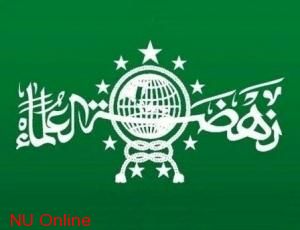Jakarta, NU Online
Nahdlatul Ulama (NU), one of Indonesia's most influential and oldest Muslim organisations, is reaffirming its neutrality in the 2014 national election. <>
After the April 9th legislative elections and amid uncertainty over how Islamic parties will influence the July 9th presidential election, NU officials went on record saying their organisation wouldn't back a particular candidate or ticket for the presidency.
"NU followers are spread throughout Indonesia. We will not oppose nor endorse any presidential candidate," Slamet Effendi Yusuf, NU's leader, told Khabar Southeast Asia on April 29th.
This followed a statement made by Nahdlatul Ulama Executive Board (PBNU) Chairman KH Said Aqil Siradj in Purwokerto two days earlier.
"We learned that our neutrality will keep our country secure during the election, and it maintains a peaceful Unitary State of the Republic of Indonesia," Said told reporters.
Later, Said told Khabar that NU could not endorse an Islamic coalition because that could pave the way for Wahhabism in Indonesia. A movement to establish an Islamic state would go against NU's founding principles, which promote tolerance and democracy, he said.
"That kind of enforcement will only lead Indonesia to conflict and intolerance, and that is not what NU wants to see in Islam," Said added.
Coalition: not in the cards?
On April 9th, the five Islamic parties – the National Awakening Party (PKB), United Development Party (PPP), National Mandate Party (PAN), Prosperous Justice Party (PKS) and Crescent Star Party (PBB) – combined to capture 33% of the vote in legislative polls.
Since then, there has been talk that these parties could form a coalition that would field a presidential candidate. The Islamic People's Forum (FUI), an umbrella group of 67 Muslim organisations, urged the five parties to take advantage of their collective win and unite as a bloc for the presidential contest.
On April 17th, representatives of the five Muslim parties met at the house of a businessman prepared to help finance an Islamic coalition effort, The Jakarta Globe reported.
But some expressed doubt the parties could set aside their differences and establish a united front.
"In today's politics, it is no longer relevant to separate Islamic parties from nationalist parties," the Globe quoted PKB Central Leadership Board Chairman Marwan Jafar as saying after the meeting. "There is not a single Muslim figure with enough electability and popularity to compete with [presidential candidates] from nationalist parties."
Editing by Sudarto Murtaufiq
Terkait
Terpopuler
1
Panduan Shalat Gerhana Bulan Petang Ini, Mulai Niat hingga Salam
2
PBNU Instruksikan Qunut Nazilah Respons Agresi Israel-AS ke Iran
3
Gus Yahya Sebut Kepergian Ketum Fatayat Margaret adalah Kehilangan Besar bagi Keluarga NU
4
Jadwal Cuti Bersama dan WFA Lebaran 2026, Total Libur Capai 16 Hari
5
Ali Khamenei Wafat dalam Serangan Israel-Amerika
6
Ketua Umum PBNU Mengutuk Serangan AS-Israel atas Iran
Terkini
Lihat Semua



